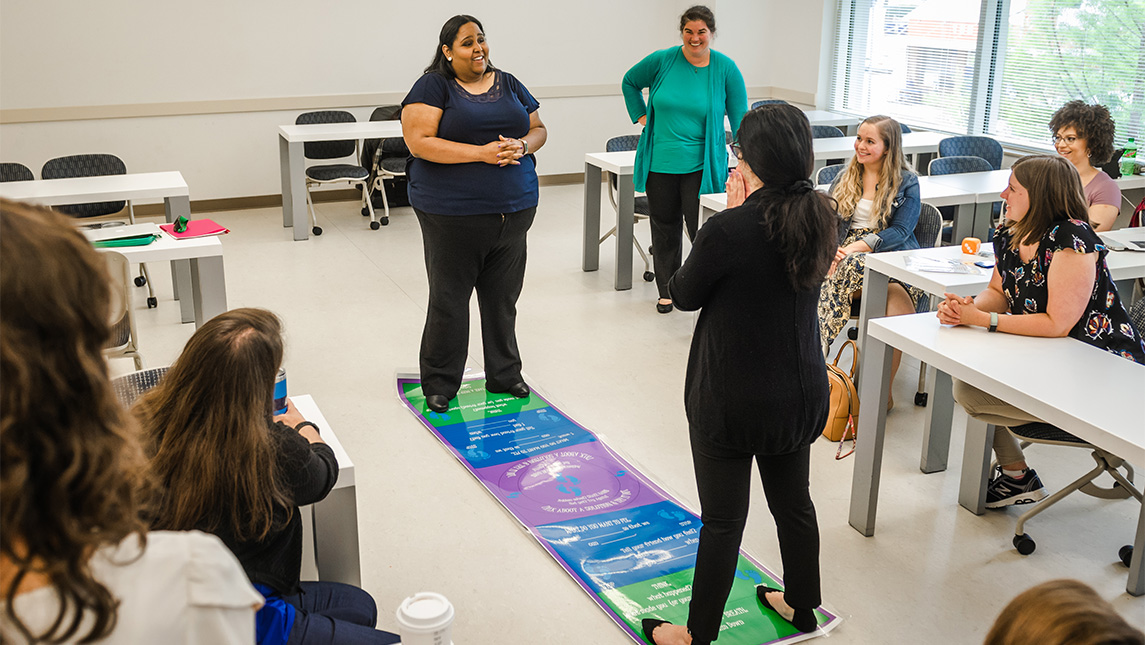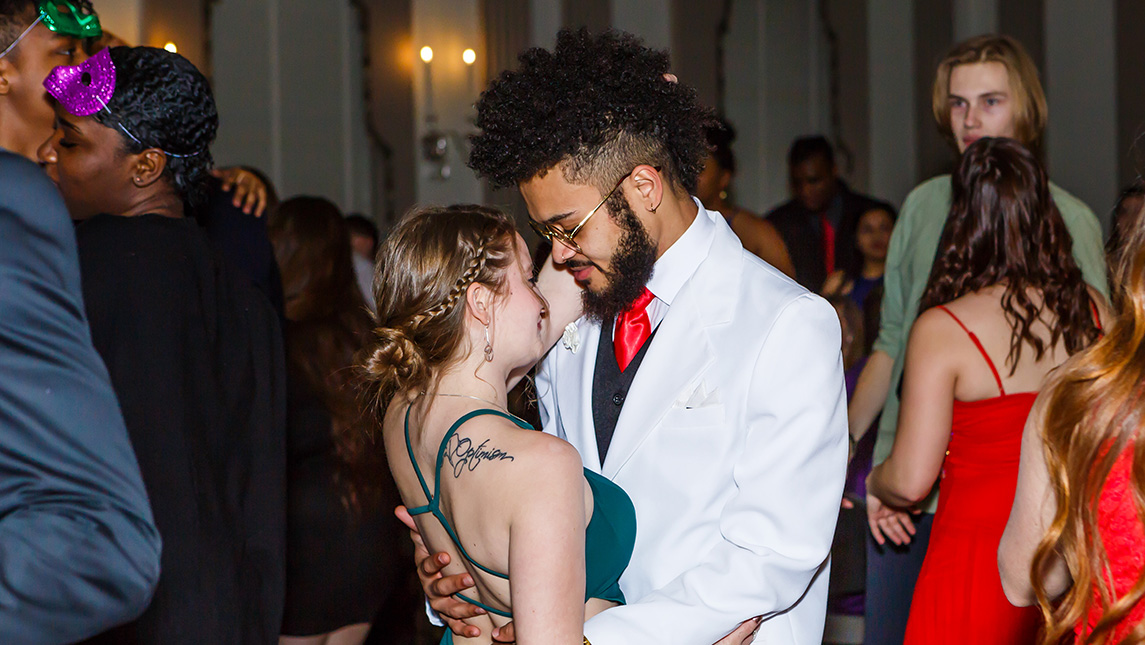Love is in the air around Valentine’s Day, and whether it’s a significant other or a circle of friends, it is a good time to reflect on how to keep your bond strong.
Dr. Christine Murray, director of UNC Greensboro’s Center for Youth Family and Community Partnerships (CYFCP), notes a difference between “healthy relationships” and “happy relationships.”
“Through our Healthy Relationships Initiative, we define happy as being the peak, the optimal level of relationship functioning,” she says. “But you don’t have to be at the optimal level to have a healthy relationship.”
Murray is a licensed Marriage and Family therapist and formerly a professor with the Department of Counseling and Educational Development. She’s worked extensively on curbing domestic violence.
Through the Healthy Relationships Initiative (HRI), Murray helps people form healthy relationships and then build upon that to reach that “happy” ideal whenever possible.
“Much of my research centered around unhealthy, and even unsafe, relationships,” she says. “That’s what’s been rewarding about the Healthy Relationship Initiative. How do you prevent an unhealthy relationship if people don’t know what healthy relationships are, and how to build them?”
The resources she provides through HRI are not just for couples. The website provides resources on friendships, partnerships, and family, as well as articles such as the “Valentine’s Day Survival Guide.”
Components of healthy relationships
“Basic communication skills are not nearly as complicated as rocket science or advanced calculus, but they can be hard to apply to the real world,” says Murray.
That means it is wise to keep the lines of communication open. She says, “Share your feelings and address problems when they come up. We say this a lot through HRI: If there’s a problem in a relationship, it’s not usually going to go away on its own.”
Make sure to self-reflect. “Know yourself and look at your own role in the relationship. It’s tempting to look at the other person, to say, ‘They’re the problem. They need to change.’ But it’s helpful to ask yourself: What am I saying or doing that’s contributing to the challenges?”
And as with all forms of physical and emotional health, relationships require routine exercise and maintenance.
“How many of us have really gotten instruction on healthy communication?” says Murray. “How to work through conflict, problem solve? Even practical things like how to manage money, co-parent, or navigate difficult decisions. Be open to learning more, because most of us didn’t have a chance to learn these fundamental relationship skills through our formal educational training.”
Back to face-to-face
As more interactions now take place through screens, texts, and microphones, some people find it difficult to be face-to-face again.
Murray says, “Be willing to admit you’re a little rusty after almost three years of living in the pandemic. We all are. Many of us have been very isolated or in Zoom meetings all day. You might find it helpful to acknowledge any uncomfortable feelings, such as by sharing with others if you feel weird to be in a group again.”
But if interpersonal events are truly disruptive, it’s a good idea to ask for help.
“It could be a sign of something more significant,” says Murray. “Your mental health impacts your relationships, and relationships impact your mental health. It’s a two-way street.”
Don’t forget your coworkers
“We tend to think of our most significant relationships as being in our personal lives,” says Dr. Murray. “But people spend a lot of time in their work environment. And in the workplace, we have less choice of who we’re interacting with.”
She stresses reminding yourself to listen and understand the other person. Embrace the chance to work with people from different backgrounds or with a different set of values instead of viewing that as a threat.
“At work, there are often real opportunities to build some connections with people who might be very different from you,” she says.
“There aren’t three or five or ten easy steps to having a healthy relationship,” says Murray. “Everyone is different.”
But the tools of healthy relationships – open communication, conflict resolution, self-reflection, etc. – are like muscles that anyone can tone with intentionality and commitment.
“The more you go to the gym and lift weights, the stronger you become to handle the things you have to pick up,” says Murray. “So, work out these relationship skills through practice, and they’ll become much easier to put into practice in all areas of your life.”
Story by Janet Imrick, University Communications
Photography by Jiyoung Park, University Communications

Make a difference in people’s lives.



